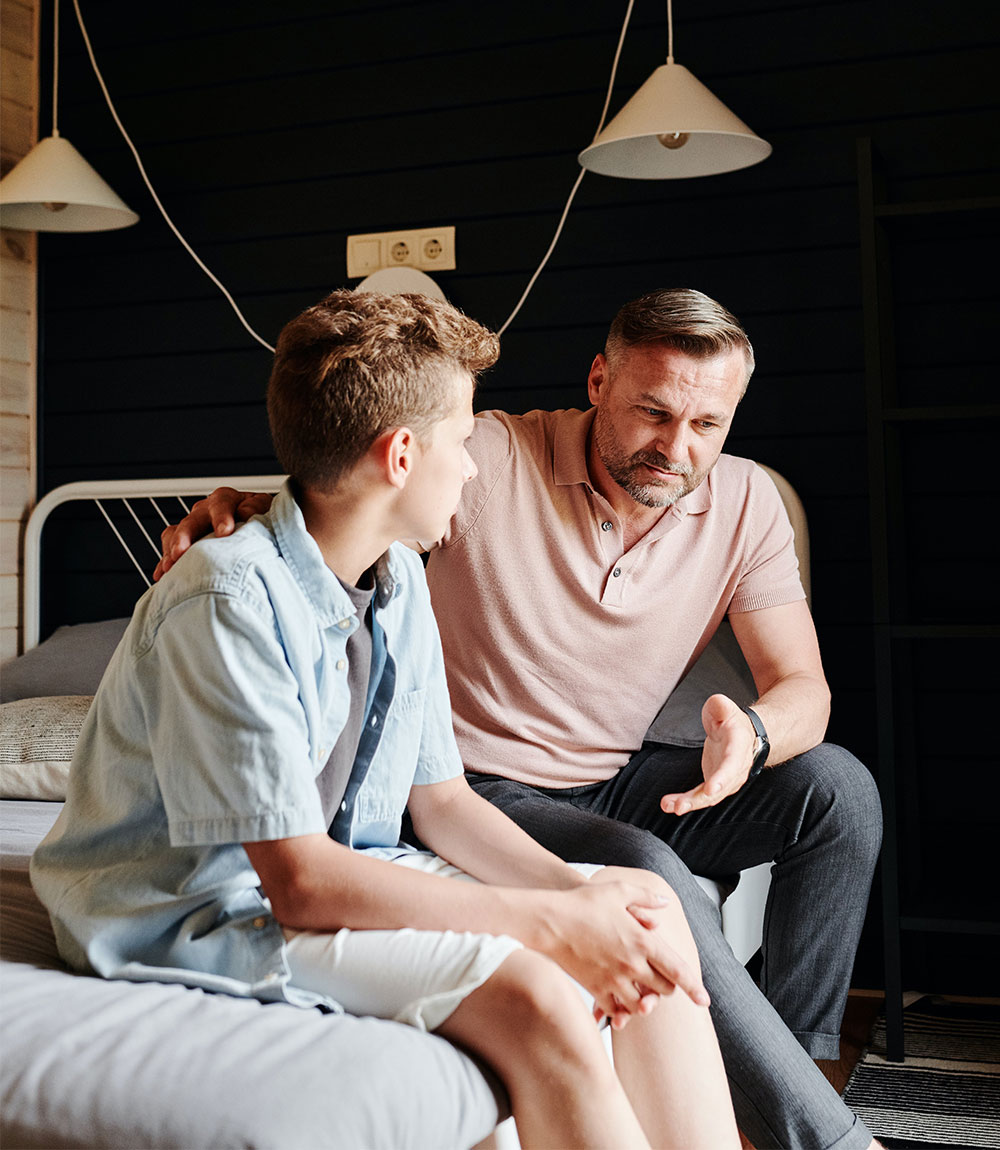Recently, I flew to Maui and want to share a crazy experience that demonstrates the power of empathy and why empathy is so important for relationships.
If you’re like most people who have been on an airplane, you have experienced the ear-piercing sound of a shrieking baby during the flight. That moment tends to generate all kinds of reactions, from the very sympathetic look toward the parents to people who look mildly annoyed to those who feel righteous indignation about the matter. During my flight, I saw the most amazing reaction to the ear-piercing sound of a shrieking baby:
A little three-year-old little boy wiggled out of his seat, shuffled over to that screaming baby, and offered him his own pacifier. I was stunned by his response! “Wow!”, I thought, “that little boy really heard and felt the baby’s distress.”
That small but mighty act of kindness caused everyone on the flight to reevaluate thier behavior. After some personal reflection, I thought to myself, “Isn’t that what all of us want? To be seen, and heard, and to have someone acknowledge and respond to our felt needs?”
Let’s face it. Empathy impacts every aspect of our lives. For example, studies show that employers who want to have an engaged and productive workforce need to get tuned in to their people. Patients who don’t feel cared about have longer recovery rates and poorer immune function. College students who are disengaged are more likely to drop out, and marriages without empathy are more likely to fail.
It’s no secret that the key to any lasting relationship is to work toward building a stronger, more intimate bond. As such, we need to express more empathy to communicate better—especially in emotionally committed relationships or marriages.
What is Empathy?
Empathy is the ability to put yourself in your partner’s shoes, to understand their emotions, to feel another’s highest hopes and deepest pain. Put another way, your empathic response demonstrates the ability to understand and validate your partner’s viewpoint. An empathic response demonstrates that you can experience what your partner feels or sense what they truly need from you—like the little boy who offered his pacifier on the airplane.
Empathy is critical to good communication because it promotes sincere connection and acknowledgment of your partner’s experiences. Your empathic response encourages your partner to feel safe and comfortable while sharing complex or sensitive topics. It’s a way to nurture each other’s opinions and feelings.
Why is it Important?
When we disagree, empathy helps us come to a deeper understanding of each other’s perspectives which promotes healthy communication and a fast resolution of conflicts.
Please note:
Empathy is not endorsing your partner’s side over yours. It’s not surrendering or conceding to their viewpoint either. Empathy does not require you to abandon your experience or perspective. It only asks that you work to understand and accept the experience and perspective of your partner alongside your own.
I’m sure the little boy on the airplane was annoyed by the ear-piercing sound of that shrieking baby, yet he was able to regulate his feelings while attending to that baby’s distress. That’s the power of empathy! Couples who demonstrate empathy towards one another typically find that they have not lost their own voice but rather feel their voice is more respected.
The 4 A’s of Empathy.
The 4 a’s of empathy give us an easy-to-remember guide for ensuring you’re applying empathy in your relationships:
- Affirm: I like your idea, sweety; your suggestion is helpful.
- Acknowledge: I can see you feel frustrated with work.
- Appreciate: I’m relieved that we are both aware of this issue.
- Assure: Don’t worry; we’ll get through this together.
In contrast, a lack of empathy can prevent us from truly understanding what our partner is trying to say because we are approaching the issue from our perspective, not theirs. In that moment, the communication pattern shifts from dialogue to monologue—and ruptures connection. Put another way, getting caught up in your feelings, fears, and anxieties during communication will block or interfere with your ability to be empathic and “get” your partner. As a result, you will accidentally or unintentionally send a subtle verbal or non-verbal message to your partner, saying, “you’re alone, you don’t matter, I’m not here for you, or you don’t get access to me.” That subtle cue can discount or invalidate your partners’ thoughts and feelings, causing them to feel overlooked, misunderstood, unaccepted, or just plain hurt.
A lack of empathy during communication creates an emotional distance that can push your partner away. Over time, they won’t want to listen to what you have to say and be concerned with your needs because you don’t seem to be concerned with theirs.
It’s something to think about…







